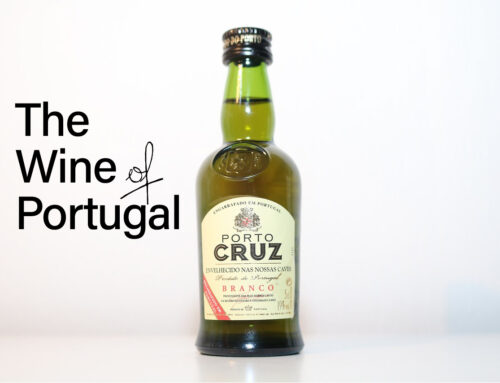From the vineyard to the bottle, wine production is a lengthy and nuanced process with plenty of subtleties that shape the gamut of the colors and flavors we know and adore. Decisions made at every step of the process can determine not only the quality of the final product, but also what it will be considered—and, of course, what words will be printed on the label.
There are plenty of important things that go on that label, too. How else will we know which wines to pick up in the store?
One of the words that’s gained some traction on labels in recent years is “organic.” To those unfamiliar with the term in wine, seeing the word might raise a few eyebrows. All wine is made from grapes, and grapes are organic, right? While this is true, it glosses over some pretty important details in the wine making process. Let’s take a look at what organic wines are, and the importance of considering these bottles.
What is an organic wine?
 There are two fundamental stages to winemaking, which can essentially be summarized by what happens before and after the grapes have been picked.
There are two fundamental stages to winemaking, which can essentially be summarized by what happens before and after the grapes have been picked.
Before grapes are ready to be harvested, they have to be grown. This is a lengthy and delicate process, especially as grapevines can be downright finicky. Years of planning and pruning are critical to getting high-quality crops. Keeping these plants alive and thriving for so long is certainly no easy feat, and this is why additives are often employed to ensure the health and durability of the vines.
This is where we run into our first possible division between “organic” and “non-organic” wines. Grapevines can be difficult to keep healthy, which is why many winemakers use additives to make sure their crops yield as much as possible (and with as high a quality as possible). Organic winemakers, on the other hand, prefer to make their wine from grapes that have been farmed organically—meaning no synthetic additives. This doesn’t mean that organic wine can’t have any additives. They often have yeast, egg whites, or even animal enzymes, which are all perfectly fine to add to an organic wine. Instead, organic wines specifically steer clear of synthetic chemical additives.
Once those healthy, shiny, juicy grapes have been harvested, one of the most important steps thereafter is that of preservation. From both a commercial and personal standpoint, it’s important for wines to be able to stick around awhile before going bad in the bottle. If and how additives are used process as preservatives here is really where the discussion is most acutely centered when defining organic wines.
Wine gets better with age, which is why it’s oh-so-important that your bottle can survive a few years before it goes bad. Following this idea, many winemakers will add sulfur dioxide—probably the most popular wine preservative used throughout the industry. Organic winemakers, on the other hand, frown on this practice. That’s why, at least in the United States, organic wine is defined as “a wine made from organically grown grapes without added sulfites.” So, essentially, organic wine is wine that has been grown and harvested without the use of synthetic pesticides and fungicides, and has not been preserved with added sulfites.
In order to be able to still produce amazing products without the security of synthetic chemicals, organic winemakers often rely on expanding biodiversity to ensure the vines are getting everything they need from the ecosystem around them.
Does it make a difference?
 We can answer this question on two planes: personal and environmental. At a personal level, if synthetic chemicals and ingredients bother you in your food or drink, then organic wines will definitely be the choice for you. The principle downside is that, since preservative additives can’t be added, you’ll only have a few years or less to pop open the bottle and enjoy your wine. But that might be a fine price to pay to avoid consuming all the synthetic chemicals used in conventional winemaking.
We can answer this question on two planes: personal and environmental. At a personal level, if synthetic chemicals and ingredients bother you in your food or drink, then organic wines will definitely be the choice for you. The principle downside is that, since preservative additives can’t be added, you’ll only have a few years or less to pop open the bottle and enjoy your wine. But that might be a fine price to pay to avoid consuming all the synthetic chemicals used in conventional winemaking.
Personal vendettas against synthetic ingredients aren’t the only reason to consider organic wines, however. Studies have shown that the chemicals usually used in conventional winemaking can damage the land that the grapes are grown on, too. This can leave the ground toxic and unable to grow as much or as high-quality crops in coming seasons, and it can also have very real effects on ecosystems away from the vineyards. The runoff water from these vineyards will inevitably meet with other bodies of water, or other crop fields. Some reports have even mentioned cases of workers becoming ill over the toxicity of the land.
So, does it make a difference? Personally and environmentally, yes. But how much of a difference it makes to you really depends on your personal preferences. Organic wine might be healthier for you since you’re avoiding consuming potentially toxic substances that would have otherwise been used in the process. Organic wine production is a very important practice for the community and the world, seeing as conventional methods can leave the earth damaged and not as easily reusable. Organic methods help keep the farming and harvesting processes more sustainable, meaning that the earth used to grow the grapes for the wine will be higher-quality and perfectly usable for a longer time than conventional vineyards.
All that said, there’s still one important differentiating factor to consider…
Does it taste any different?
The quick-and-dirty answer is yes—though, maybe not in the way you’re thinking. Organic winemaking is a careful and labor-intensive process that needs to place special attention in making sure that conditions are perfect, since synthetic chemicals aren’t used along the way. The result? More often than not, it means better-tasting wine.
In a sense, organic winemakers are swapping chemicals for harder work. It shouldn’t be too much of a surprise then that experts consistently score organic wines better than conventionally-made wines.
So, to sum it up: organic wines often taste better, bring fewer toxic substances into your body, and are a more sustainable product than conventional products. What’s not to love?






Leave A Comment